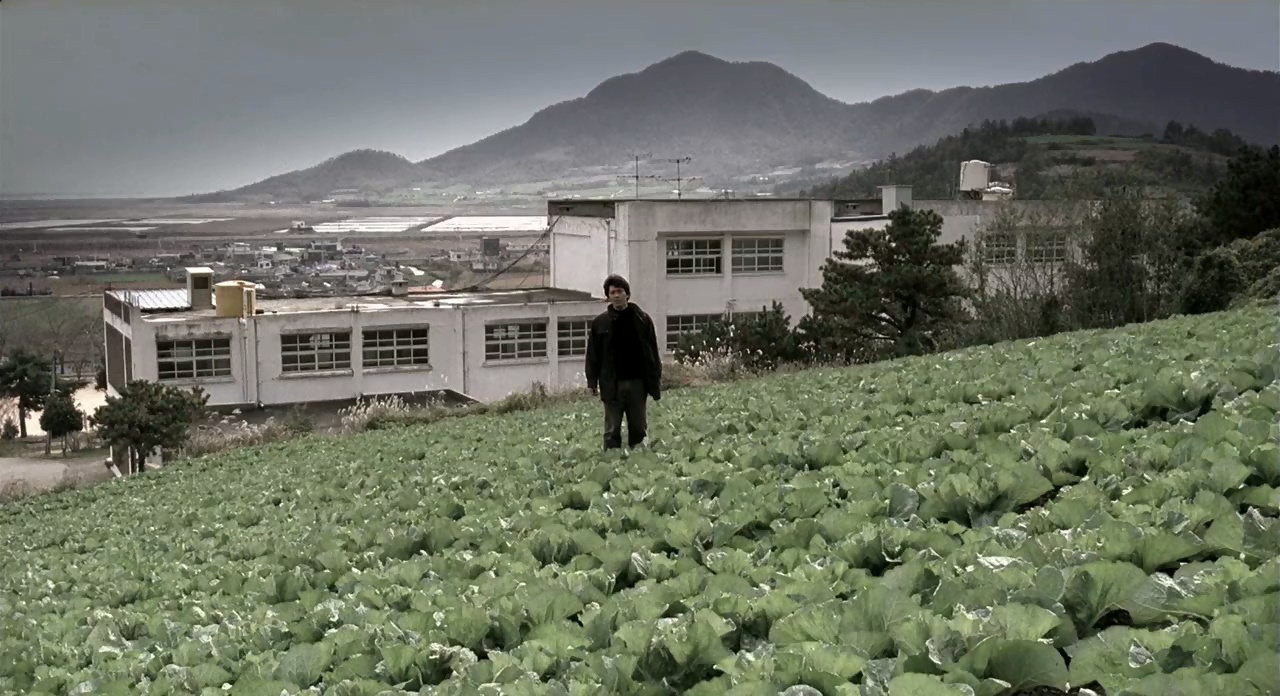Memories of Murder is the second feature film of Bong Joon-Ho, the celebrated Korean director best known for the critically acclaimed Parasite, released earlier this year. Originally released in 2003, it has been remastered and is showing in cinemas again at the time of writing. Inspired by a series of the murders that occurred in South Korean’s Gyeonggi Province in the 80s and 90s, it also won extensive acclaim at the time.
The movie is a thriller interspersed with black comedy. It takes place in a period of South Korean history when the country was politically unstable and poor; inequality, corruption and protests lurk in the story’s background, adding to the tension. Set in a small town surrounded by dense fields of tall grass and forests, much of the action occurs in the dark, isolating farmland. Like Parasite, it uses sudden tonal shifts, albeit a lot more, with the overall atmosphere becoming darker as the story progresses. Scenes are hilarious and comforting and then surprisingly scary, at points. The plot is memorable and engaging. My only criticism would be that these shifts happen so often, especially in the second half of the film, that it desensitises or devalues those moments. The most intriguing element is karma, which we see used like punishment when characters overstep the mark.
Bong Joon-Ho regular Song Kang-ho plays Park Doo-man, an at first amoral and egocentric small-town detective unaccustomed with serial murders. Opposite him is Seo Tae-yoon, a more competent but snobbish detective from the capital city. The development of these two people as they make decisions that affect their colleagues, friends and the town’s residents, is heart-breaking. Alongside them is Park Doo-Man’s sidekick, an impulsive officer who ends up at the receiving end of Bong-Joon Ho’s karma, he embodies a feeling of exhaustion and despair in the film. Then there’s the only female officer on the case, often behaving more intelligently than her superiors. She brings a clear-headed calmer presence, providing the audience with some respite.

The soundtrack composed by Taro Iwashiro, builds from slow and emotional to higher tempo, trying to keep up with the occasionally abrupt pacing. The music does work in those scenes individually but is held back by the emotional jumps. Alone, however, the pieces are beautiful, either tear-jerking or nerve-wracking. They always compliment the colour palette, warm and almost hopeful when the sun is shining on the fields, exhausting and painful in the dark forests and slow and brooding in the grey cold police station.
The shots are satisfying and aesthetically pleasing or purposely clunky and disorienting. Most impressively, the editing manages to keep up with and match the sudden shifts in tone, allowing for smoother transitions. If this wasn’t the case, the film would have felt more disjointed. It’s important that they got that right with a story like this.
Memories of Murder is an emotionally intelligent film. You can see that a considerable amount of care and consideration has been put into the screenplay. The execution is close to flawless, my only criticisms being the tone and some of the set design, which is sometimes so devoid of colour and features it can look fake. However, this could be down to a small budget (only $2.8 million) and the fact it came out 17 years ago. It as an underappreciated film, especially with the later success of the director. Please see it if you can.
Image Credit: IMDb

